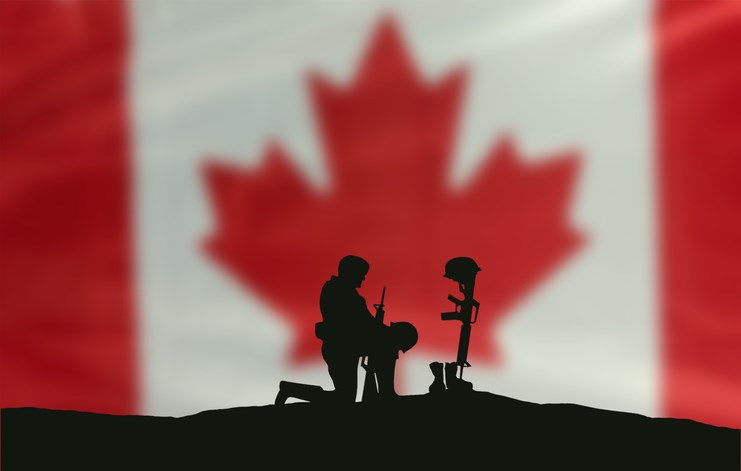Remembrance Day, when Canadians pause to remember our relatives, ancestors and/or fellow citizens who gave their lives in war, particularly the First World War, Second World War and Korean War, but also more recent conflicts like Afghanistan, is a bit of a curious thing in Thompson.
Unlike many other Canadian cities, there have never been a lot of veterans in the Nickel City. Mainly this is because the city wasn’t even founded until after the two world wars and the Korean War had taken place and most of the people who moved here in the early days were young, too young to have been a part of any of those conflicts. Then there’s the fact that most of the other inhabitants of the regions are Indigenous, and Indigenous people weren’t always heavily recruited to join the armed forces as volunteers in peacetime, though they were certainly drafted or signed up willingly during the Second World War, for example. The city is also far away from the nearest Canadian Forces base in southern Manitoba and even too far for residents to easily join the reserves, unless they want to dedicate a couple of days on either end of the monthly weekend of training to drive back and forth down Highway 6 or have enough money to hop on a plane and fly. The main way to be a part of the Canadian Forces in the north is to be a Canadian Ranger, a semi-informal home defence militia whose members stress survival skills as much as military prowess in things like marching and shooting, though the latter skill does fall into both categories.
Because of this, Thompsonites may not have the personal connection to past war efforts that some other communities do. There aren’t monuments to area residents who died in battle or streets that are known for how many of their residents went off to war and came back as heroes or didn’t come back at all.
Still, it is important for Thompsonites to remember the sacrifices of past soldiers. While Canada isn’t a perfect country by a long stretch (no country is), there are lessons that the example set by soldiers who fought in foreign lands, whether by choice or because they were compelled to, can teach us.
Perhaps most important is that individual rights don’t trump everything else. As it is sometimes put, the good of the many outweighs the good of the few. Though many people who signed up to become soldiers, or were conscripted because the armed forces needed them, believed that they would emerge at the end of the war unharmed, the truth is that they knew that not all of them would. But even after seeing friends and comrades killed by gas, by shrapnel, by bullets, by flamethrowers, by bayonets and by nearly every other means imaginable, these soldiers continued to march ahead, to emerge from the trenches and rush their enemy, perhaps only for the gain of a few dozen yards at the cost of maybe hundreds or thousands of lives. Sure, there were penalties for deserters designed to encourage soldiers to keep fighting, but people have given up in far less trying circumstances. Those soldiers who gave their lives didn’t, even though they knew it wasn’t going to be beneficial to them personally.
It’s fair to feel that society owes people a lot of things. It is, after all, an artificial construct like the economy, the rules of which can be changed to suit those the system is ostensibly there to serve. But people also owe the society they grew up and live in, for providing security, the rule of law, public services, education, even health care in many, but not all, countries. Many of those who fought for Canada overseas recognized this, and took up arms in defence of that society not because they wanted to, but because it was their duty and what was expected of them as good citizens.
In 2021, freedom is often shorthand for “being able to do what I want, not matter the consequences.” Without soldiers who were willing to give up their lives to preserve their way of life and, hopefully, see it improve and become even better and more equitable in the future, many of us might literally be labouring under actual tyranny and have firsthand experience of what oppression actually is.



